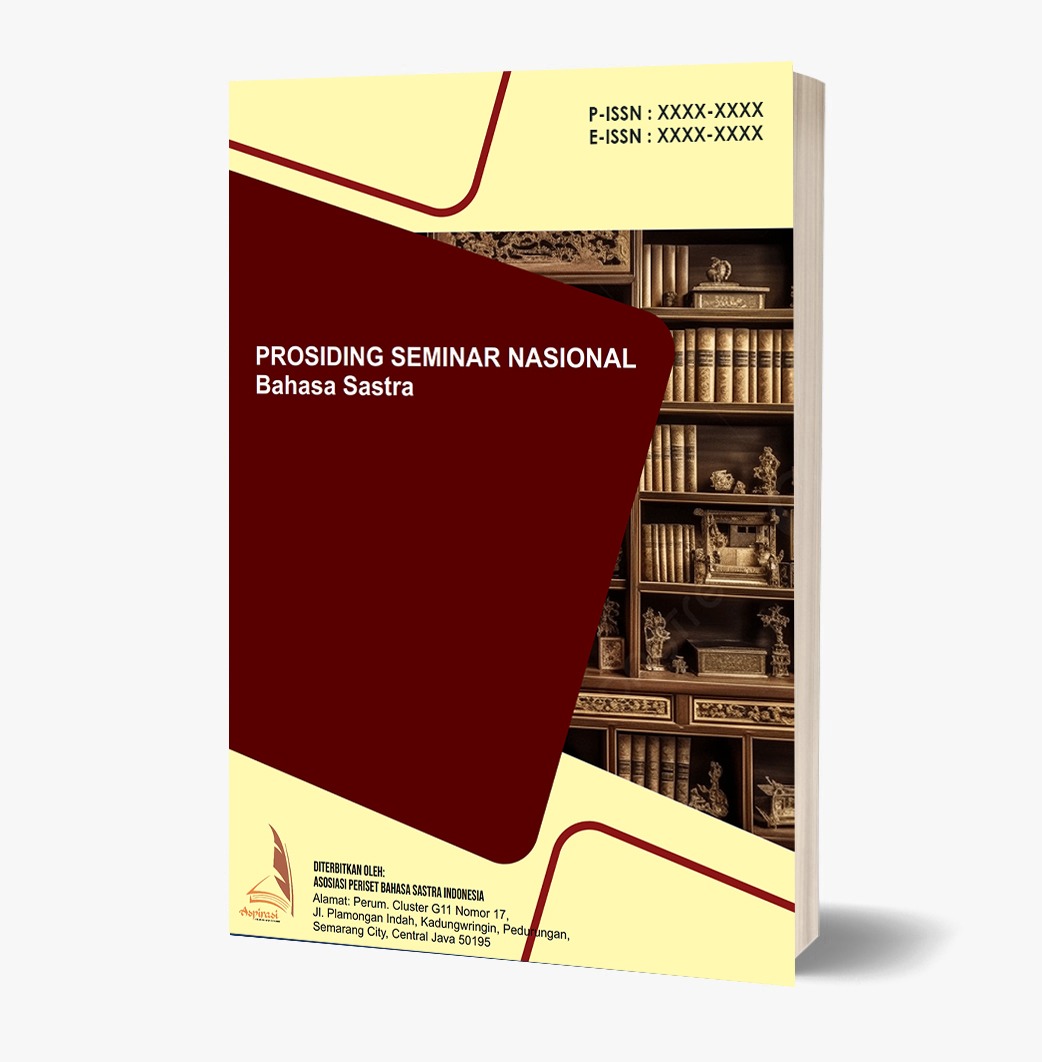Pengaruh Sastra Lisan Terhadap Karya Sastra Modern Indonesia
Keywords:
oral literature, intertextuality, modern literature, folkloreAbstract
Oral literature has an important role in the formation of modern literary works in Indonesia. This research explores how elements of oral literature, such as myths, legends, and folktales, still survive in modern literary works. Using the intertextual analysis method, this study reveals the interrelationship between oral literature and modern novels or short stories. The results show that many writers still adapt oral literature elements to enrich the narratives in their works.
References
Abrams, M. H. (1999). A Glossary of Literary Terms. Boston: Heinle & Heinle.
Damono, S. D. (1982). Sosiologi Sastra: Sebuah Pengantar Ringkas. Jakarta: Pusat Bahasa.
Danandjaja, J. (1997). Folklor Indonesia: Ilmu Gosip, Dongeng, dan Lain-lain. Jakarta: Pustaka Utama Grafiti.
Eagleton, T. (1996). Literary Theory: An Introduction. Oxford: Blackwell.
Finnegan, R. (1977). Oral Literature in Africa. Oxford: Oxford University Press.
Halliday, M. A. K. (1978). Language as Social Semiotic. London: Edward Arnold.
Hoed, B. H. (2002). Semantik Leksikal. Jakarta: Pusat Bahasa.
Jakobson, R. (1960). Linguistics and Poetics. Cambridge: MIT Press.
Kristeva, J. (1980). Desire in Language: A Semiotic Approach to Literature and Art. New York: Columbia University Press.
Mulder, N. (1996). Mysticism in Java: Ideology in Indonesia. Yogyakarta: Kanisius.
Pudentia, M. P. S. (2006). Sastra Lisan Indonesia. Jakarta: Balai Pustaka.
Ratna, N. K. (2007). Estetika Sastra dan Budaya. Yogyakarta: Pustaka Pelajar.
Ricoeur, P. (1976). Interpretation Theory: Discourse and the Surplus of Meaning. Fort Worth: Texas Christian University Press.
Teeuw, A. (1984). Sastra dan Ilmu Sastra: Pengantar Teori Sastra. Jakarta: Pustaka Jaya.
Wellek, R., & Warren, A. (1949). Theory of Literature. New York: Harcourt Brace





